Phil Mickelson
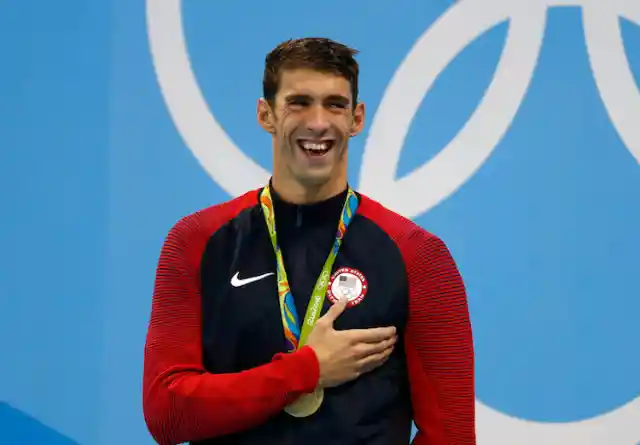
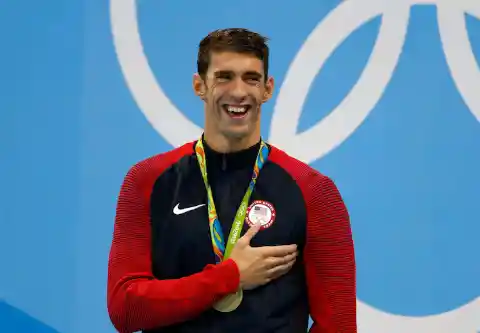
Despite their seemingly super-human levels of fitness, star athletes are susceptible to chronic illnesses, diseases, and health issues, just like the rest of us.
You’ll be shocked to learn about a few of these famous athletes who’ve achieved greatness in the face of serious health conditions. If you’re in seek of inspiration, look no further than these unbelievable stories of defying the odds…
Venus Williams


Professional golfer Phil Mickelson, winner of five major championships, was diagnosed with psoriatic arthritis in 2010. The autoimmune disease causes debilitating joint pain and bouts of painful, itchy psoriasis, which could have cut Mickelson’s career short.
To his credit, however, Mickelson adopted a multi-faceted treatment approach that puts his symptoms into remission, allowing him to continue to win major championships!
Magic Johnson


Venus Williams is one of the all-time greatest women’s tennis players, with seven Grand Slam singles titles to her name. In 2011, she was forced to withdraw from the US Open due to complications stemming from her autoimmune disorder, Sjogren’s syndrome, which causes intense fatigue and joint pain.
She’s since returned to professional tennis with a revitalized diet and training program and is back to a ranking of World No. 6.
Mario Lemieux
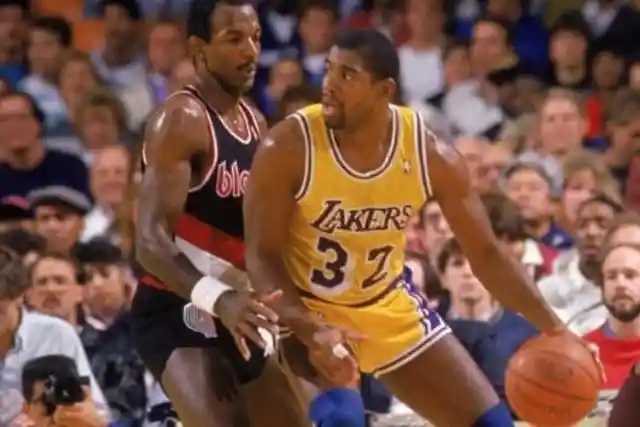
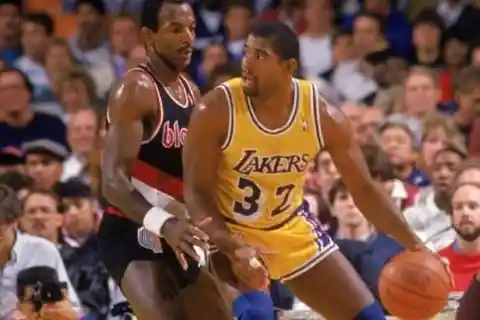
Earvin “Magic” Johnson won five NBA Championship with the Lakers during the 1980s, before abruptly retiring in 1991 after announcing that he’d contracted the HIV virus. Johnson promptly dedicated himself to battling the disease, founding the Magic Johnson Foundation and raising unprecedented awareness about the disease.
He’s lived a healthy life for about 30 years since announcing his diagnosis and is looking better than ever today, as he continues to thrive as a successful businessman and philanthropist in Los Angeles.
Steve Nash


Over his 17 seasons playing in the NHL, Mario Lemieux came to be known as one of the greatest hockey players of all time. Mid-way through his career, however, in 1993, he was diagnosed with Hodgkin’s disease, a cancer of the lymphatic system.
He played for another four years (!) before finally taking a long break from hockey to undergo radiation treatments, eventually returning to play six more seasons in the NHL.
Michael Phelps
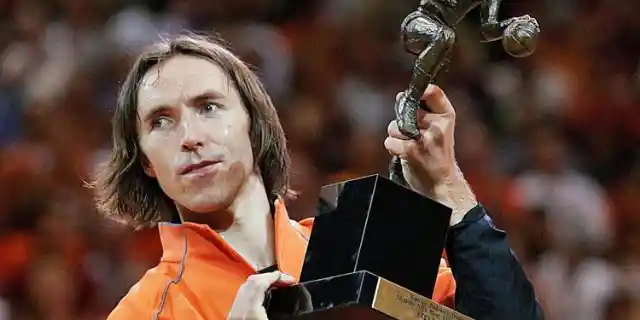
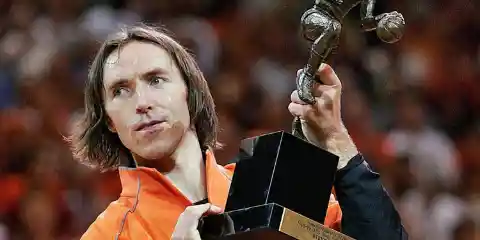
Former two-time NBA MVP Steve Nash is one of the best basketball players to have played the game. Not many know that Nash suffers from a back condition known as spondylolisthesis, which causes muscle tightness and back pain.
Nash refused to be held down by this condition and played in the NBA for over 18 years. He credits his incredible longevity to his real-food diet, his discovery of yoga, and his daily stretching regimen.
Arthur Ashe
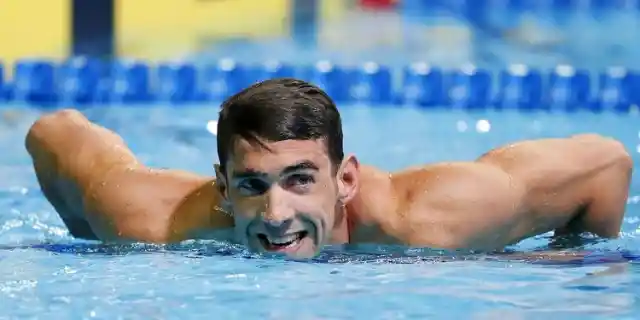

Swimmer Michael Phelps is the most decorated Olympic athlete of all time, with a total of 28 medals. It hasn’t been all rosy though, as suicidal thoughts and alcoholism led to a diagnosis of clinical depression and a stint in rehab in 2014.
Only two years later, at the 2016 Rio Olympics, Phelps returned to win six medals! He credits his comeback to 100% sobriety, as well as optimized circadian hormone rhythms, through increased sleep.
Greg Louganis
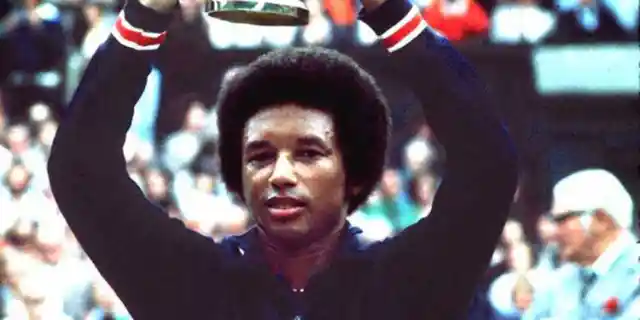
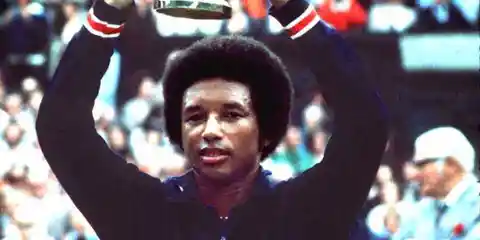
Many consider Ashe to have been one of the most influential athletes of the 20th century. He was the first black tennis player to win Wimbledon, the US Open, and the Australian Open.
A stellar career was cut short in 1980 after being diagnosed with heart disease. Ashe dedicated himself to battling the disease and took on the role of chairman for the American Heart Association the very next year.
Lou Gehrig
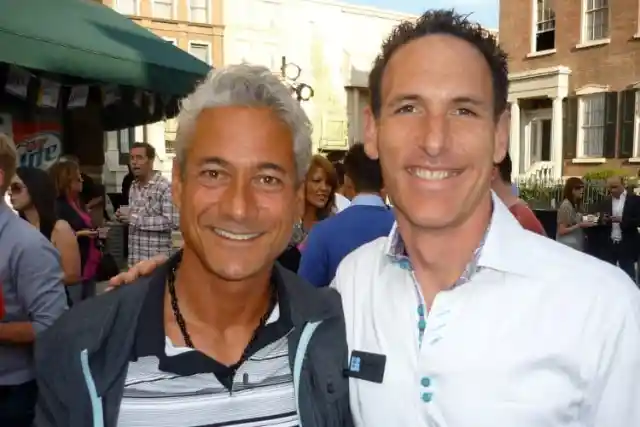
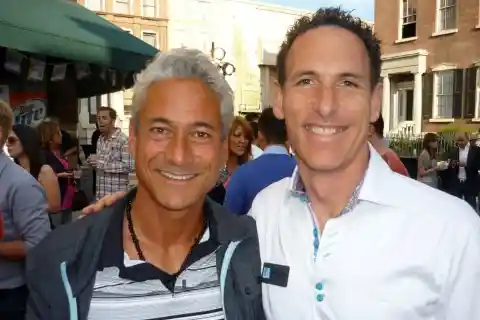
Greg Louganis was named “Most Outstanding Amateur Athlete” in the US in 1984. From there, he went on to win Olympic Gold medals in diving in 1984 and 1988. At the height of his career, he was struck with a heavy blow: an HIV diagnosis, in 1988.
He eventually wrote about his battle with the disease in his autobiography, Breaking the Surface, which became a Showtime movie in 1996.
Kareem Abdul-Jabbar
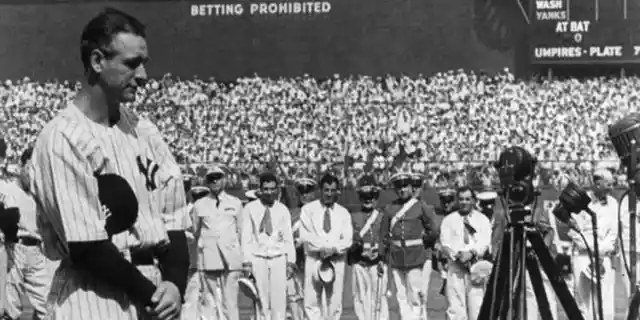
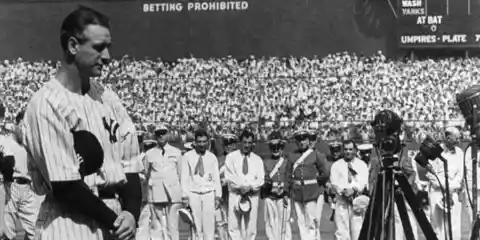
Lou Gehrig was an amazing baseball player who played for 17 seasons, making the All-Star team seven times. In 1939, he was forced to retire, after contracting amyotrophic lateral sclerosis (ALS).
In the face of his upcoming battle with the fatal disease, Gehrig delivered his now iconic “The Luckiest Man on the Face of the Earth” speech. He expressed nothing but gratitude for his fans and was given a 2-minute standing ovation.
Muhammad Ali
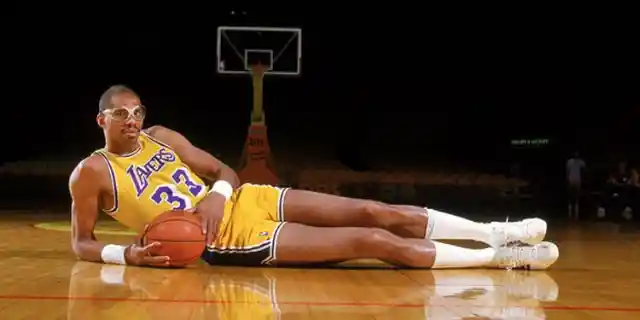
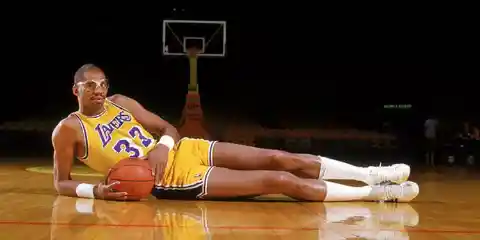
Kareem Adbul-Jabbar is one of the greatest basketball players of all time, having won the NBA Most Valuable Player Award six times. In 2008, he was diagnosed with Ph+ CML, a rare cancer of the blood and bone marrow.
Abdul-Jabbar met the disease head-on and used his position as a public figure to build awareness of the disease while inspiring others who were struggling with it. He successfully defeated his cancer in 2011, after he’d announced that it had gone into remission.
Kayla Montgomery
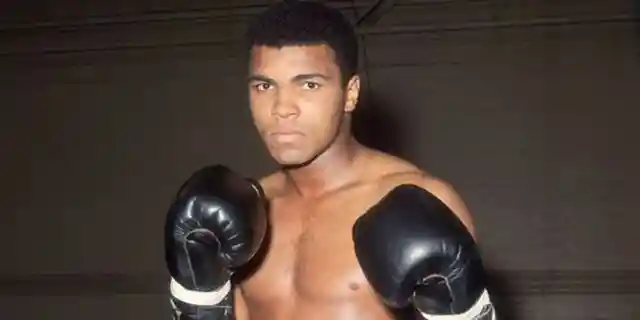

Considered by many to be the greatest boxer of all time, the late Muhammad Ali was diagnosed with Parkinson’s disease in 1984. The long-term disorder is characterized by the degeneration of the central nervous system.
Following his diagnosis, Ali became a steadfast activist for Parkinson’s awareness, establishing the Muhammad Ali Parkinson Center in 1997.
Alonzo Mourning


When Kayla Montgomery was 14, she was diagnosed with an aggressive form of Multiple Sclerosis (MS). As a result, she had to give up playing soccer, but she refused to give up sports altogether and started running long distances instead.
Despite the fact that her legs go numb after about a mile of running, Montgomery has won multiple North Carolina State track titles and continues to push herself to the limit.
LaMarcus Aldridge
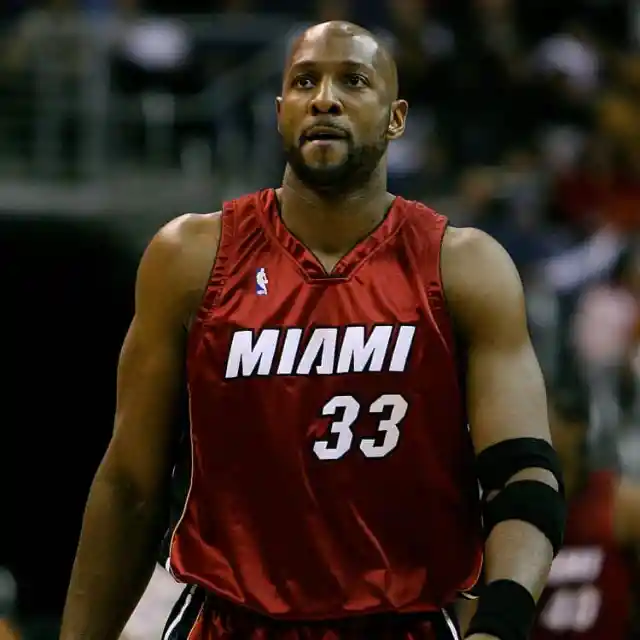
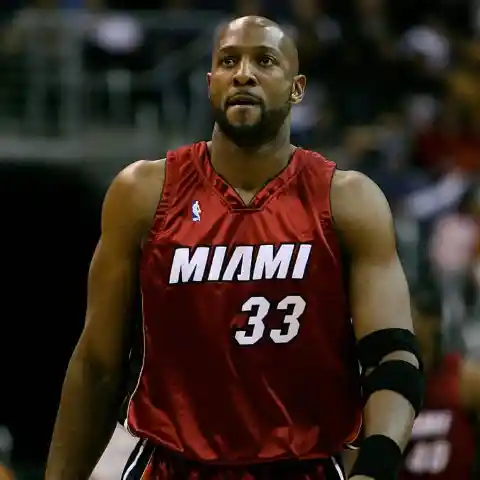
Alonzo Mourning played 15 years in the NBA, winning the NBA Defensive Player of the Year Award twice. In 2000, Mourning was diagnosed with focal segmental glomerulosclerosis.
After taking some time off, Mourning played a 75-game season in 2002-2003. He then retired briefly for a kidney transplant in 2003, before returning to the NBA, eventually winning an NBA Championship with the Miami Heat in 2006.
Francisco Rodriguez
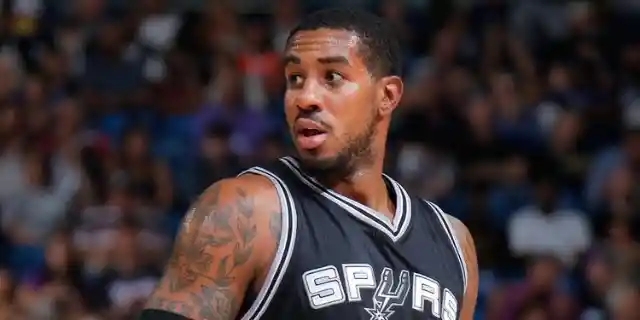
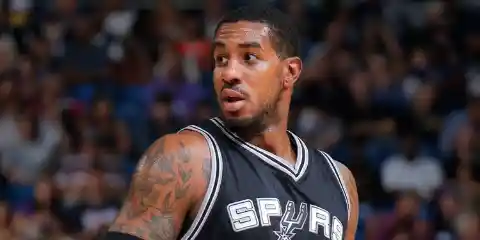
After being selected second overall in the 2006 NBA draft, Aldridge faced a challenging start to an otherwise promising NBA career. Aldridge was diagnosed with Wolff-Parkinson-White Syndrome (WPW).
WPW is a heart disorder characterized by premature ventricle contraction. Aldridge missed nine games that season but fought his way back to good health and continues to be one of the elite players in the Western Conference.
Tim Howard


This past summer, professional baseball pitcher Francisco Rodriguez contracted the Zika virus while in Venezuela. Two weeks of severe joint pain, muscle aches, and headaches were only some of the symptoms he was hit with.
Despite being knocked down, Rodriguez fought his way back to health and has been outspoken about the illness ever since, urging other athletes to be careful when traveling to South America.
Jake Diekman
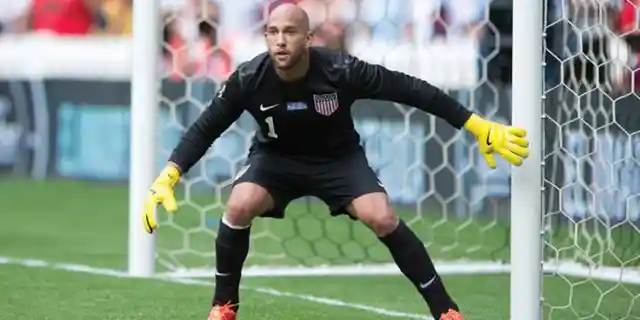
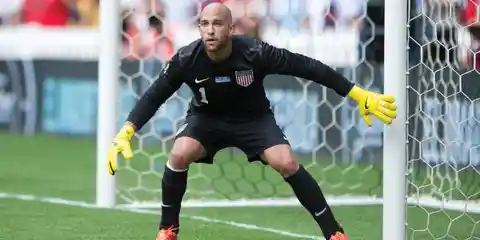
Tim Howard has battled Tourette’s Syndrome and OCD since age 9. Tourette’s is a neurological disorder characterized by involuntary movements and sounds known as “tics.”
His struggles with Tourette’s did not stop him from becoming the goalkeeper for the US National Soccer team and the English soccer club Everton, however, Howard has dedicated much of his life to spreading awareness of the disease.
David Garrard


Jake Diekman is a professional baseball pitcher for the Oakland Athletics. He may look like the picture of perfect health, at 6’4” and a muscular 200lbs, but on the inside, he struggles with ulcerative colitis (UC).
Diekman has battled the inflammatory bowel disease since childhood, dealing with off-and-on severe weight loss that seriously threatens his baseball career. He continues to shine as a pitcher despite the difficulties, however.
Trevor Bayne
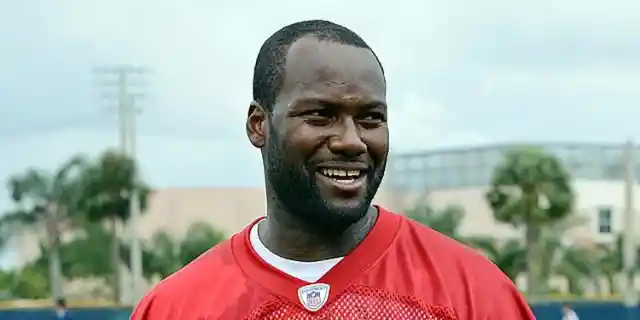
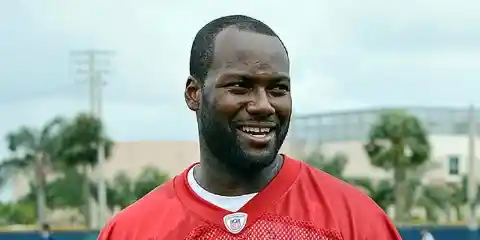
Former NFL quarterback David Garrard was diagnosed with Crohn’s disease in 2004. Inflammatory bowel disease often causes strong intestinal pain, diarrhea, fatigue, and weight loss.
In June 2004, Garrard underwent surgery, in which a foot of his intestine was removed – and he still played during the next NFL season, only a few months later! Garrard learned to manage his disease and went on to play another seven seasons.
Ryan Clark


In 2011, Trevor Bayne became the youngest winner of the Daytona 500 at 20 years old! Only two years later, he was diagnosed with Multiple Sclerosis (MS). The chronic disease, which affects the central nervous system, often causes pain, loss of vision, and numbness in the limbs.
After a brief hiatus from racing to adjust to the diagnosis, Bayne returned to NASCAR and continues to race to this day, excelling on the race track.
Brian Vickers


After what seemed like a typical NFL game in Denver, Washington Redskins’ free safety Ryan Clark began experiencing unbearable pain in his left side. A medical examination found that he suffers from sickle cell trait, a less severe form of sickle cell disease.
Clark was forced to have both his gallbladder and spleen removed. After a season’s break, however, he returned to the NFL, to play for seven more years.
Carrie Johnson


At 20 years old, young Brian Vickers became a NASCAR phenomenon when he won the 2003 Busch Series. In 2011, he was diagnosed with the blood-clotting condition deep-vein thrombosis (DVT).
Despite the difficulties of treatments, Vickers returned to racing with a vengeance, winning yet another Sprint Cup Series soon after his first round of treatment.
Mike Lowell


Despite a heavy battle with anemia, fatigue, and weight loss due to Crohn’s disease, Carrie Johnson made it to three separate Olympic games as a kayaker. She even qualified for her first Olympics only a year after being diagnosed with the disease.
Since retiring from kayaking, she’s dedicated herself to publicly advocating for those with Crohn’s disease and has become one of the most prominent voices of those who suffer from this condition.
Sean Elliott


When 1999 arrived, Mike Lowell had finally achieved his dream of playing baseball in the major leagues. Only a short year later, however, he was diagnosed with testicular cancer.
He was forced to miss spring training and almost two months of the regular season while going through treatment. He did not give up, however, and returned to baseball more determined than ever, going on to win three World Series titles!
Scott Hamilton
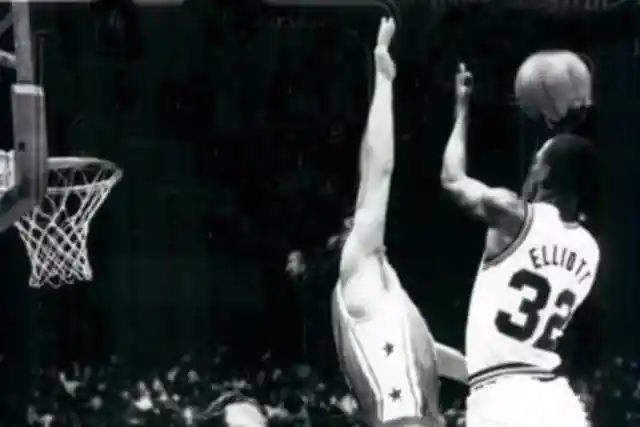
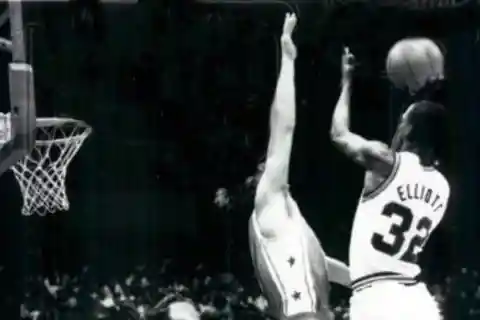
In game two of the 1999 Western Conference finals, Sean Elliott made a game-winning shot for the San Antonio Spurs that came to be known as the “Memorial Day Miracle.” That win sparked the Spurs’ momentum, leading to a series sweep and eventual NBA championship.
After winning the Finals, Elliott revealed that he’d played despite having a kidney disease known as focal segmental glomerulosclerosis!
Theoren Fleury
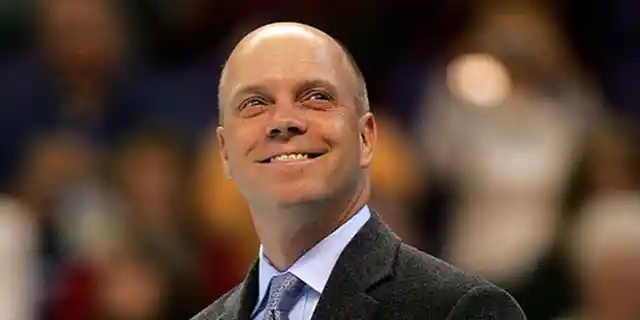
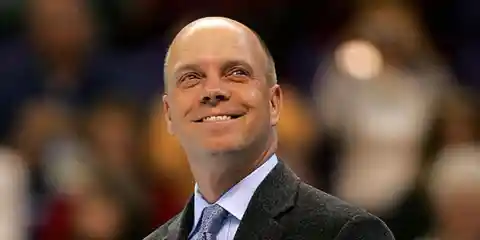
Olympic Gold medalist figure skater Scott Hamilton had a nasty surprise delivered to him in 1997 when he was diagnosed with testicular cancer. He continued to skate throughout most of his treatment, and his inspiring story was featured in multiple magazines and TV programs.
He was also diagnosed with brain cancer in 2004. After experiencing these challenges, he’s said “The only disability in life is a bad attitude.”
Charlie Villanueva


Theoren Fleury had a highly successful NHL career before being diagnosed with Crohn’s disease in 1995. Despite the many struggles that come along with the autoimmune disorder, Fleury continued to play professional hockey for many years, even winning an Olympic Gold medal with Canada in 2002.
He also organized a charity golf tournament that has raised more than $1 million in funds for the Crohn’s and Colitis Foundation.
Matt Light
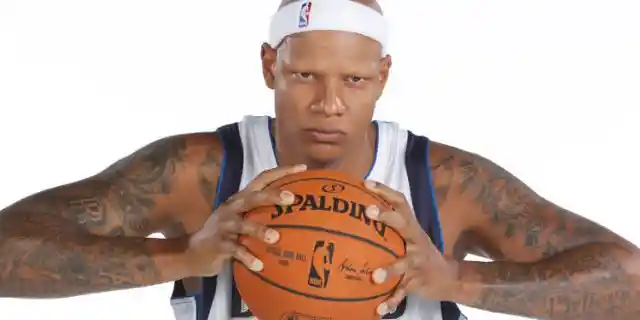
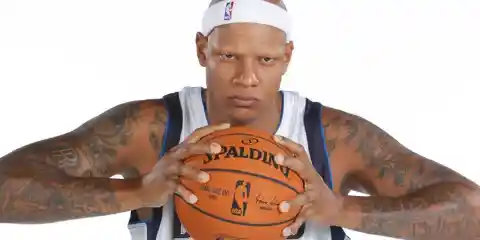
The Dominican-American NBA forward has had a lifelong autoimmune skin condition known as alopecia universalis, which results in hair loss on the entire body. Villanueva was bullied and made fun of for his condition a lot growing up, but it didn’t stop him from achieving his dreams of playing in the NBA.
He retired from the NBA after playing the 2015-16 season for the Dallas Mavericks, and serves as a national spokesman for the National Alopecia Areata Foundation.
Judy Rankin
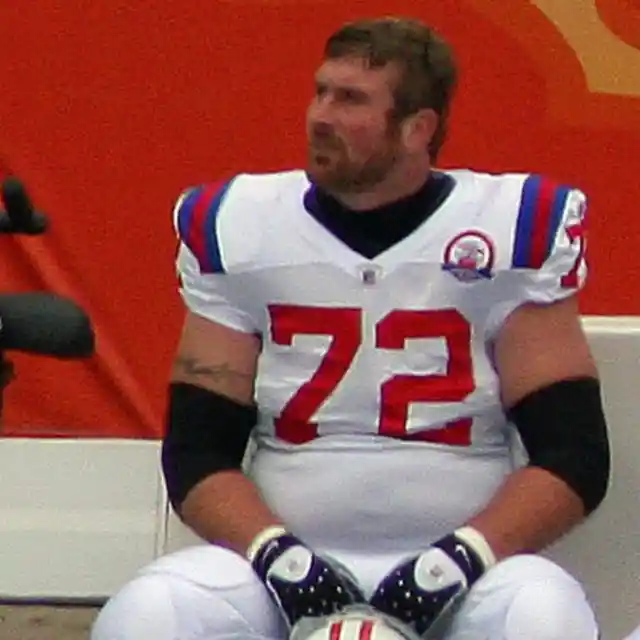
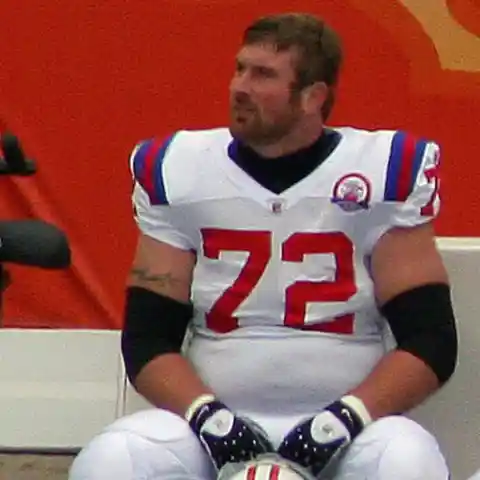
Matt Light played linebacker for the New England Patriots for eleven years while privately battling Crohn’s disease. He was unable to take many of the medications for the disease while playing football and had to receive surgery at one point to remove more than a foot of his intestine.
For the most part, Light simply fought through the pain and difficulties and played phenomenal football, winning three Super Bowls with the Patriots.
Ryan Reed


Judy Rankin began crushing the professional women’s golf game at the age of 17! Over the course of her career, she won 26 tour events and was named LPGA Player of the Year twice. In 2006, her successful career as a golf commentator for ESPN/ABC Sports and the Golf Channel was interrupted by a breast cancer diagnosis.
After successfully battling back from the disease, she promptly returned to her commentating work and continues to share brilliant insights on the sport she’s been around her whole life.
Kevin Dineen


Shortly after moving cross-country to begin racing cars professionally at the age of 17, Reed received a life-changing diagnosis: Type-1 diabetes. His first thought? “How will this affect my racing?”
Doctors initially told him he’d never be able to race again, but Reed refused to give up on his dream. He returned to racing with an A-team of medical professionals to help him with his diet and keep his blood sugar levels stable.
Gary Hall, Jr.


Like many athletes struck with the disease, pro hockey player Kevin Dineen was diagnosed with Crohn’s disease early on in his career. It was quite a blow at the time, but after a rocky start, Dineen took control of the disease, learned to manage it effectively, and went on to play 16 more years in the NHL.
Dineen is a vocal advocate for those who suffer from Crohn’s disease and has participated in various fundraising and awareness campaigns.
Chris Wilcox
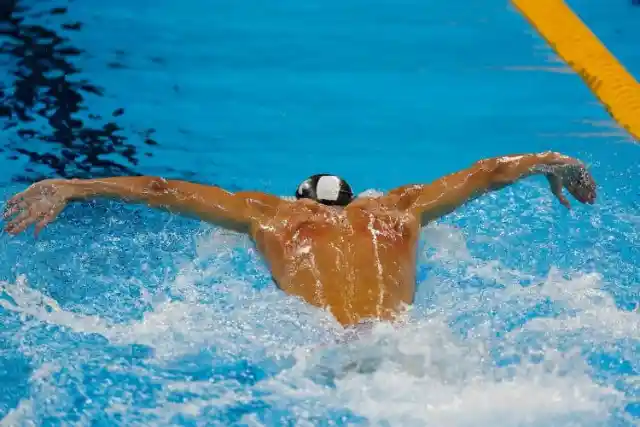

Gary Hall Jr.’s stellar swimming career came to a grinding halt one day in 1996 when he was diagnosed with Type 1 diabetes. Despite the shock of the diagnosis, Hall was not one to be cowed.
He attacked his treatment with the same force of will he had used to win 10 Olympic medals (five gold!) in freestyle swimming and was back in the pool again in no time. He went on to compete in two more Olympic games.
Eddy Curry
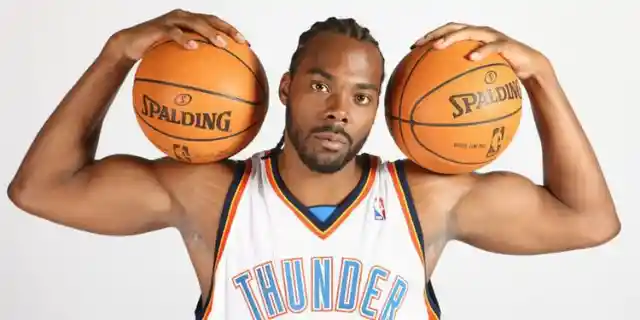
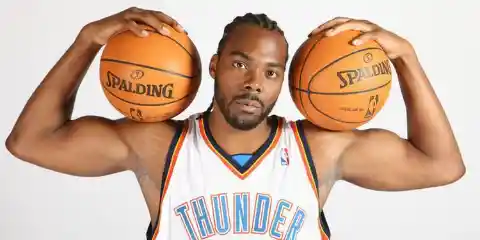
After nearly 10 successful years in the NBA, a routine health screening revealed that Chris Wilcox had a heart irregularity. It turned out that Wilcox’s aorta had thickened to dangerous levels. Wilcox underwent open heart surgery soon after, missing the rest of the 2011-2012 season.
Showcasing impressive determination, Wilcox recovered quickly from his major surgery and returned to play a starting role for the Boston Celtics the very next season.
James Morrison


7-ft NBA center Eddy Curry was an up-and-coming young NBA player for the Chicago Bulls when, out of nowhere, he was hospitalized with an irregular heartbeat in 2005. He’d lead the Bulls to the playoffs that year as their leading scorer, but was diagnosed with the heart condition hypertrophic cardiomyopathy and was forced to miss the rest of the season.
Eventually, Curry was cleared and went on to play eight more seasons in the NBA. Just another example of the incredible resolve of an athlete who’s dedicated to overcoming the odds.
Nenê


James Morrison has suffered from Crohn’s disease since his mid-teens. Even with the complications of this disease, Morrison has had a successful career as a professional golfer.
During one particular tournament, he was hospitalized due to a flare-up of his symptoms. However, in a show of remarkable grit, he rallied and went on to finish the tournament.
Pat Summitt
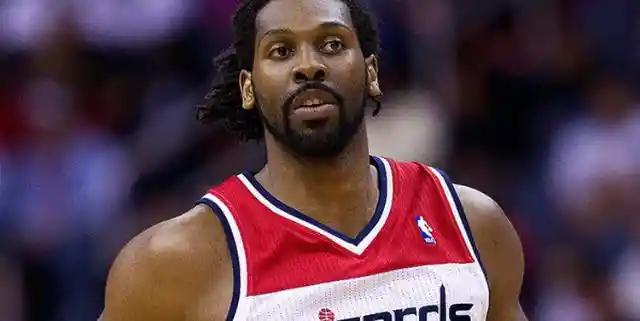
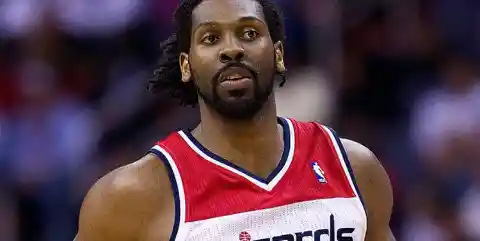
After six successful years playing in the NBA for the Denver Nuggets, Brazilian-born Nenê took an indefinite leave of absence. He reported he needed time to deal with an undisclosed medical issue.
Only three days later, he underwent surgery to have a testicular tumor removed. He returned to play for the Nuggets in late March 2008, entering the court to a standing ovation from the crowd.
Isaiah Austin


The late Pat Summitt was a star college basketball player and Olympic gold medalist long before becoming one of the greatest college basketball coaches of all time. From 1974 to 2012, she coached the University of Tennessee Lady Vols women’s basketball team, winning 1,098 games and never recording a single losing season!
In 2011, Summitt was diagnosed with early-onset Alzheimer’s disease, and still completed the season with a reduced role. She’s considered by many to be the greatest coach in women’s basketball history.
Eric Berry
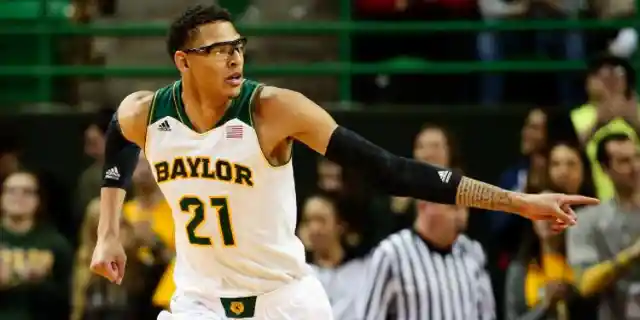
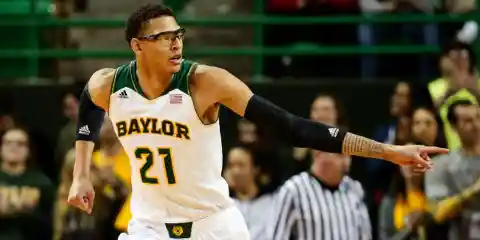
Isaiah Austin was a college basketball star at Baylor University, seemingly on the fast track to play professionally. His NBA dreams were cut short, however, when he was diagnosed with the genetic disorder Marfan’s Syndrome in 2014.
Enlarged heart arteries may have ended his basketball career, yet Austin found a new purpose in spreading awareness of the condition, starting the Isaiah Austin Foundation in 2014.
Wilma Rudolph


Eric Berry was playing safety for the Kansas City Chiefs when, in December 2014, he was diagnosed with Hodgkin’s disease- cancer of the lymphatic system. He took a break from football to undergo chemotherapy and successfully defeated his cancer.
Only nine months later, he returned to play in the NFL! That year, he had a record year and was selected to play in the Pro Bowl. Talk about a comeback!
Larry Nance Jr.
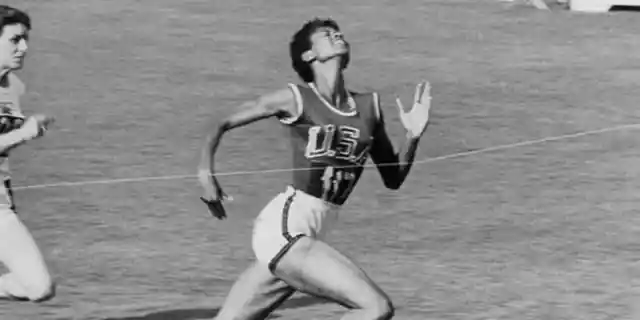
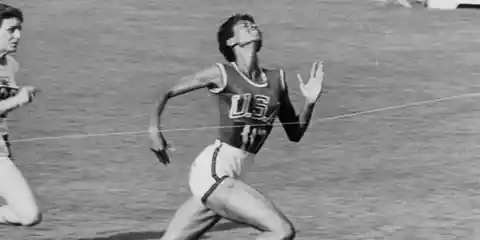
Wilma Rudolph survived whooping cough, measles, and scarlet fever – all by the time she was 12. She was also briefly paralyzed by polio, which left her left foot slightly deformed.
Undeterred by these health struggles, Rudolph went on to win three track and field gold medals during the 1960 Summer Olympics. She became known as “The Tornado, the fastest woman on earth!”
Shayne Corson
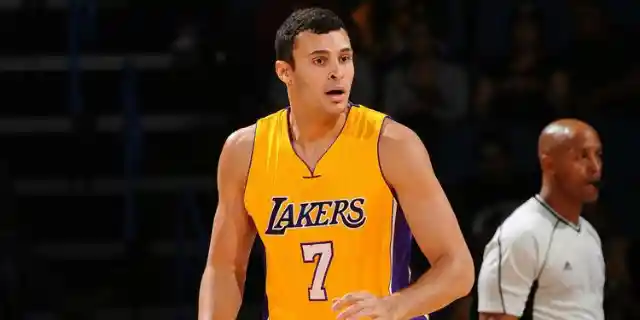
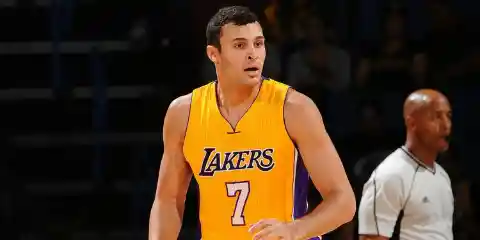
At 6’8”, with impressive coordination and overall athletic ability, Larry Nance Jr. looks like he was born to shine on the basketball court. He went through an intense struggle to get to where he is today, however.
He was diagnosed with Crohn’s disease in high school and undergoes infusions of biologic medication (Remicade) every seven weeks in order to keep playing. But play he does, as he’s routinely shown on highlight reels for his monstrous dunks.
Fernando Pisani


Not many people know that Shayne Corson, the gritty, Canadian hockey player, was secretly battling Crohn’s disease throughout his entire NHL career.
Corson typically had to battle through 3-4 flare-ups of the inflammatory bowel disease per season, which caused intense stomach cramps, diarrhea, weight loss, and severe energy dips. Despite the struggles, Corson played 19 years of professional hockey, captaining two different teams.
Sir Steve Redgrave


In 2005, Canadian hockey player Fernando Pisani was diagnosed with ulcerative colitis (UC). Though he was able to continue playing hockey for a couple of months, the symptoms got so bad that he was forced to miss most of the season.
His energy levels plummeted and he ended up losing around 40 pounds. Pisani was able to battle his way back to good health however, regaining all his normal weight and returning to the NHL the next year.
Michael Koenen


When Sir Steve Redgrave was diagnosed with Type-2 diabetes in 1997, he’d already won 4 Olympic Gold medals for rowing. Although he was shaken by the diagnosis and worried that he might never return to rowing, that’s exactly what Redgrave did!
He worked hard, followed a strict low-sugar diet, and went on to win yet another Gold medal at the 2000 Sydney Olympics.
Larry Sanders
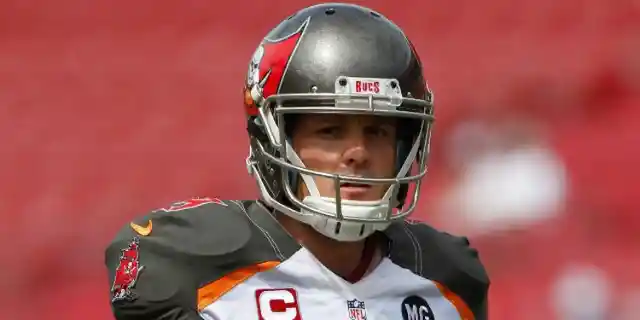
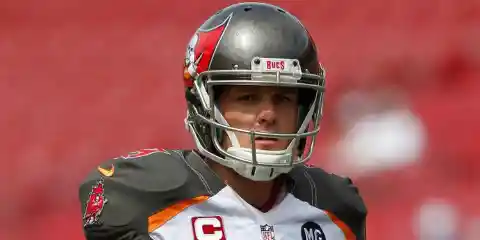
Ten years into a successful career as a punter in the NFL, Koenen contracted clostridium difficile, a potentially fatal colon bacteria. He struggled with vomiting attacks and near-constant diarrhea, causing his weight to plummet to 40 pounds below his standard number.
After finding a gastroenterologist who understood his problem, Koenen underwent fecal microbial transplantation and is now cured. He regained his weight and even attempted to make an NFL comeback.
Rolf Benirschke
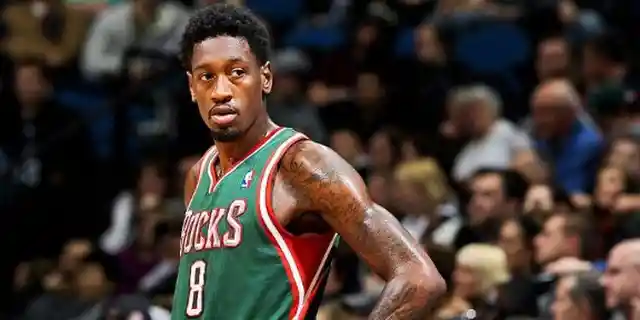

Last year, 26-year-old Larry Sanders left the NBA and checked himself into a hospital for anxiety and depression. He walked away from a $27 million contract, and who knows how much more money in future endorsements.
Many thought he was crazy, but Sanders held strong to his convictions and did what he felt he had to do. He was brave enough to realize that, despite the money, basketball was not healthy for him.
Royce White
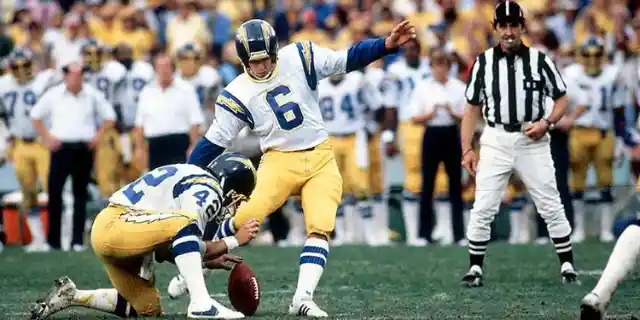
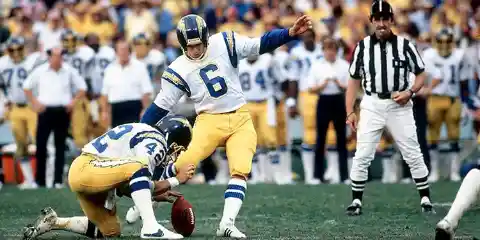
During his second season in the NFL, placekicker Rolf Benirschke was diagnosed with ulcerative colitis. This diagnosis marked the beginning of a harrowing journey for Rolf, taking him through four major abdominal surgeries and to the brink of death.
Rolf fought his way back to good health and returned to play for another eight years in the NFL, winning many awards, including NFL Man of the Year and Comeback Player of the Year.
Rashad Butler
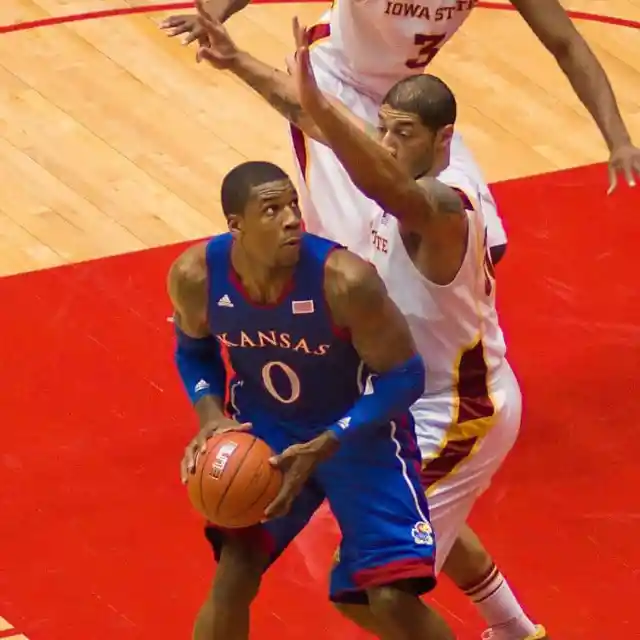
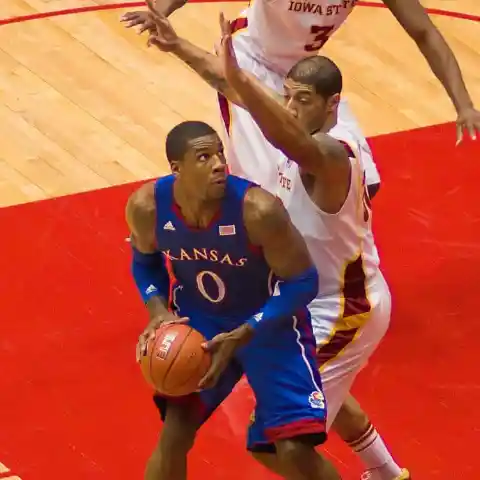
Royce White is a young NBA player who’s been outspoken about his anxiety disorder for years now. He’s even confronted the NBA publicly about their dismal efforts to maintain the mental health of its players.
He’s dedicated himself to raising public awareness of mental health issues and reducing their stigma. He recently launched his own foundation, Anxious Minds, to support this cause.


PHOTO: ATHLETICSMEDIA.LIBRARY.MIAMI.EDU
Rashad Butler entered the NFL in 2006 and was on track for a promising career with the Carolina Panthers. However, he was cut in 2007 because of his inability to keep on enough weight. Butler had trouble with this because of his struggles with ulcerative colitis.
He continued to pursue his dream of playing in the NFL and was signed soon after by the Houston Texans, where better medical care helped him to regain his lost weight.